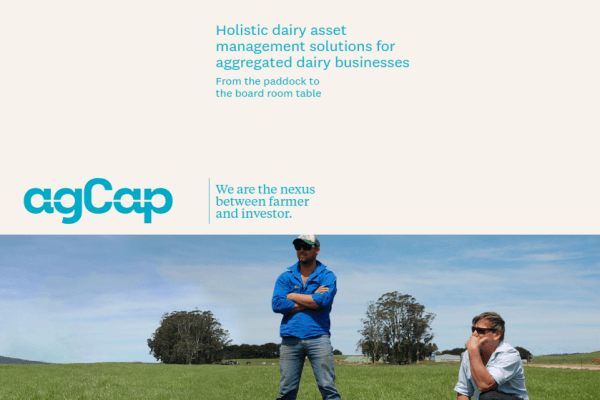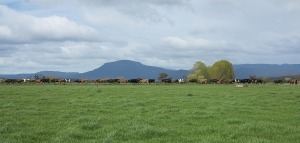Australian agricultural investment manager agCap has completed the sale of its first Sustainable Agriculture Fund (SAF) portfolio, grossing more than $180 million for investors and paving the way for a second investment vehicle to focus on Australian dairy.
The sale of SAF’s Tasmanian livestock farms concludes the final tranche of a successful sale process, which combined with the Fund’s strong three-year returns (9% p.a. after fees and tax), is expected to deliver approximately $200 million back to investors over the life of the investment.
agCap CEO Martin Newnham said he’s extremely proud of what SAF has achieved over its life and the way in which the team handled its divestment.
“In less than ten months, we managed 100 property inspections and multiple complex negotiations, all the while overseeing 17 individual farm operations within the SAF portfolio,” Mr Newnham said.
“SAF’s success can be attributed to making sound acquisitions, developing the assets, our matured management model and divesting at the right time.
“Importantly, none of this would have been possible without the patience and support of our investors who backed the original investment thesis and supported agCap throughout the life of the fund.
“The sale of SAF presents a major milestone for them as agri-investing pioneers and for us as we now look to repeat its success with a strong focus on Australian dairy assets.
“The agCap Board and management team decided to exclude agCap as a potential buyer of SAF assets for ethical governance reasons and to ensure process transparency. The insights we gleaned from the sale process, however, certainly affirms our view that well-constructed investments in agriculture can provide institutional investors excellent risk adjusted returns.”
Mr Newnham says long-run cyclical and structural change in the Australian dairy industry is creating an opportunity for institutional investors and managers to partner on a compelling investment thesis.
“Australian dairy farmers are globally competitive, produce high quality safe products with high brand recognition in domestic and overseas markets,” he said.
“We are excited by the opportunities we see in dairy, and with the support of existing agCap shareholders, we are currently assessing suitable structures for potential investors, having commenced work on a pipeline of pasture based dairies in south west Victoria and Tasmania.”
agCap’s dairy investment program is expected to be available to institutional and sophisticated investors in early 2018.


 As reported in
As reported in 